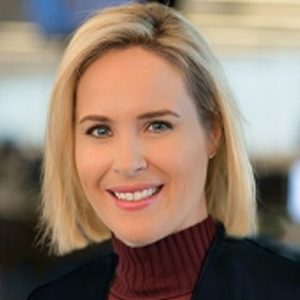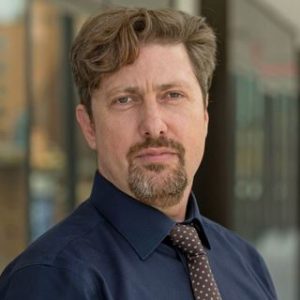Washington DC | July 12, 2016
The Future of the Grid:
Spotlight on Cybersecurity
Last December, a coordinated cyber attack cut power to more than 100 Ukrainian cities and towns by leveraging commonly available tools and tactics against the control systems which could be used against infrastructure in every sector. This attack represents one of the first known physical impacts to critical infrastructure resulting from cyber warfare. Could a similar cyber grid attack happen in the U.S.?
July 12 - Tuesday
Networking Breakfast
Welcome Remarks
Speakers
-
Megan Murphy
Editor, Bloomberg Businessweek
-
Eric A. Spiegel
President and CEO, Siemens USA
Opening Conversation: Building a Framework for Securing Infrastructure
The U.S. electrical grid, which serves more than 300 million people and is made up of more than 55,000 transmission substations, is one of the most important pieces of infrastructure in the country. Due to the interdependent structure of the components of the grid, a single line outage can cause power outages that affect millions of people and have significant costs on the economy. Specific attacks such as data interception, denial of service, data altercation, or a cyber “drive by shooting” have been used by groups, individuals, and nation-states against electrical grids. How do we prevent a catastrophic cyber attack on the U.S. power grid?
Speakers
-
Megan Murphy
Editor, Bloomberg Businessweek
-
Elizabeth Sherwood-Randall
Deputy Secretary, U.S. Department of Energy
Challenges to the Industry and Critical Infrastructure Protection Standards
As industry works to secure the grid, alignment and collaboration between critical infrastructure owners and operators is crucial. What are the core challenges utilities are facing in protecting the grid from cyber attacks? What are the capability gaps? What incentive structures might encourage industry to better support the grid? How is industry thinking beyond just compliance and engaging with new innovations and strategies?
Speakers
-
Michael Riley
Cybersecurity Reporter, Bloomberg
-
Sue Kelly Sue Kelly
CEO, American Public Power Association
-
Annabelle Lee
Principal Technical Executive and Cybersecurity Power Delivery and Utilization, Electric Power Research Institute
-
Marcus H. Sachs
Senior Vice President and Chief Security Officer, NERC
-
Zeeshan Sheikh
CIO, Entergy
Panel: A Comprehensive Approach to Grid Security
As cyber threats continue to grow, maintaining a secure grid will requires a comprehensive approach to securing the grid that runs across detection, monitoring, and response. How can regulators and industry leaders work together to improve threat intelligence and secure the whole supply chain in a collaborative way? Speakers will be challenge to collaborate on a comprehensive approach to securing the grid that encompasses the whole energy ecosystem and enables best practices.
Speakers
-
Rob Barnett
Senior Analyst -- Energy Policy, Bloomberg Intelligence
-
Scott Aaronson
Executive Director, Security and Business Continuity, Edison Electric Institute
-
Dennis P. Gilbert, Jr.
Director of Information and Cybersecurity, Corporate and Information Security Services, Exelon
-
Suzanne Spaulding
Under Secretary for the National Protection and Programs Directorate, U.S. Department of Homeland Security
Understanding and Responding to the National Security Threat
A large scale attack on the cyber grid could lead to sustained power outages and also impact access to food and water, health care, and other critical needs. As a result, securing the electric grid has become an increasingly critical national security issue. How can utilities and federal agencies anticipate the timing and sources of potential attacks and work to prevent the potential repercussions of a successful cyber attack?
Speakers
-
Michael Riley
Cybersecurity Reporter, Bloomberg
-
Michael V. Hayden
Co-Chair, Electric Grid Cybersecurity Initiative, Bipartisan Policy Center
Closing Remarks
Speakers

Megan Murphy
Editor Bloomberg BusinessweekEric A. Spiegel
President and CEO Siemens USAElizabeth Sherwood-Randall
Deputy Secretary U.S. Department of Energy
Michael Riley
Cybersecurity Reporter BloombergSue Kelly Sue Kelly
CEO American Public Power AssociationAnnabelle Lee
Principal Technical Executive and Cybersecurity Power Delivery and Utilization Electric Power Research InstituteMarcus H. Sachs
Senior Vice President and Chief Security Officer NERCZeeshan Sheikh
CIO EntergyRob Barnett
Senior Analyst -- Energy Policy Bloomberg IntelligenceScott Aaronson
Executive Director, Security and Business Continuity Edison Electric InstituteDennis P. Gilbert, Jr.
Director of Information and Cybersecurity, Corporate and Information Security Services ExelonSuzanne Spaulding
Under Secretary for the National Protection and Programs Directorate U.S. Department of Homeland SecurityMichael V. Hayden
Co-Chair, Electric Grid Cybersecurity Initiative Bipartisan Policy CenterPartners

Siemens Corporation is a U.S. subsidiary of Siemens AG, a global powerhouse focusing on the areas of electrification, automation and digitalization. One of the world’s largest producers of energy-efficient, resource-saving technologies, Siemens is a leading supplier of systems for power generation and transmission as well as medical diagnosis. Siemens has also been in the transportation business for over 160 years, introducing the first electric railway in 1879 and has since worked on rail projects across the globe. The Siemens Mobility Division provides efficient and integrated transportation of people and goods by both rail and highways by designing and manufacturing across the entire spectrum of rolling stock including commuter and regional passenger trains, light rail and streetcars, metros, locomotives, passenger coaches and high-speed trainsets. In the U.S., Siemens is providing rail vehicles, locomotives, components and systems to more than 25 agencies in cities such as Washington D.C., New York, Boston, Chicago, Seattle, Miami, Orlando, Philadelphia, Denver, Baltimore, Salt Lake City, Minneapolis, Houston, Portland, Sacramento, San Diego, St. Louis, Atlanta and Charlotte. Cities also rely on Siemens to provide traction-power substations and electricity transmission, as well as signaling and control technology for freight and passenger rail and transit systems. Siemens has transportation manufacturing hubs in: Sacramento, CA; Louisville, KY; Marion, KY; Pittsburgh, PA.